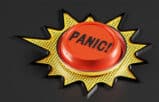One of my mediations included negotiation of a medical provider’s lien. The lien was $10,000; the offer to settle it was $3,700. I gently pointed out that the offer was less than half the amount billed for services. The attorney replied sincerely, “No, that’s more than half.” (It’s not.)
Math Is Part of Your Job
A big part of a lawyer’s role is negotiation, and that means numbers. A lawyer has to be able to calculate the value of whatever is being negotiated. Case evaluation is part art and a lot of math. Pulling a number out of the air and hoping the other side will accept it does a disservice to your client and the other parties to the negotiation. You will be more persuasive if you can show your position is supported by a solid analysis of the financial factors driving the negotiation.
I Have to Do Math, Too?
“I became a litigator just so I wouldn’t have to do math,” some lawyers protest. Many math-adverse lawyers include a provision in the retainer agreement specifying that they are not providing tax advice. Sorry — that doesn’t get you off the hook.
Ethics Are Part of the Picture
The American Bar Association Model Rule of Professional Conduct about competency states: “A lawyer shall provide competent representation to a client. Competent representation requires the legal knowledge, skill, thoroughness and preparation reasonably necessary for the representation.”
That means you must be conversant with all of the factors affecting your advice, a negotiation, or presentation of evidence. If a lawyer is not expert in a subject, the lawyer can notify the client of the need to obtain an expert who is. But every lawyer should be able to do basic math. We’re not talking calculus; we’re talking arithmetic.
Force Yourself — and Your Opponent — To Do the Math
Make sure you have grasped all the numeric factors of your client’s case, and then crunch the numbers. If your math skills are weak, turn for help to whoever is running the numbers for your practice, possibly your firm’s bookkeeper.
The largest cases might call for a forensic accountant or economist. Even when case economics justify the use of such experts, they usually are not brought in until long after the lawyer should have a good sense of the numbers driving the case. Use of experts is cost-prohibitive for the overwhelming majority of day-to-day legal matters.
Don’t assume your opposing counsel has done the math homework. Before reacting to an offer or demand, politely ask the presenter to show how that number was calculated. Keep pushing the point until you understand the underlying math or your opposing counsel concedes the number has no more substance than cotton candy.
Illustration ©iStockPhoto.com
Subscribe to Attorney at Work
Get really good ideas every day: Subscribe to the Daily Dispatch and Weekly Wrap (it’s free). Follow us on Twitter @attnyatwork.
















